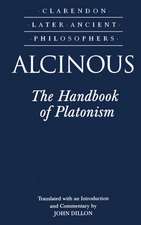Scientific Knowledge and Sociological Theory: Routledge Library Editions: History & Philosophy of Science
Autor Barry Barnesen Limba Engleză Hardback – 15 aug 2008
Scientific Knowledge and Sociological Theory centres on the problem of explaining the manifest variety and contrast in the beliefs about nature held in different groups and societies. It maintains that the sociologist should treat all beliefs symmetrically and must investigate and account for allegedly "correct" or "scientific" beliefs just as he would "incorrect" or "unscientific" ones. From this basic position a study of scientific beliefs is constructed. The sociological interest of such beliefs is illustrated and a sociological perspective upon scientific change is developed.
Din seria Routledge Library Editions: History & Philosophy of Science
-
 Preț: 241.11 lei
Preț: 241.11 lei - 34%
 Preț: 987.58 lei
Preț: 987.58 lei -
 Preț: 409.48 lei
Preț: 409.48 lei -
 Preț: 190.51 lei
Preț: 190.51 lei -
 Preț: 193.40 lei
Preț: 193.40 lei -
 Preț: 408.54 lei
Preț: 408.54 lei -
 Preț: 481.58 lei
Preț: 481.58 lei - 30%
 Preț: 336.55 lei
Preț: 336.55 lei -
 Preț: 411.42 lei
Preț: 411.42 lei -
 Preț: 410.28 lei
Preț: 410.28 lei -
 Preț: 406.59 lei
Preț: 406.59 lei - 16%
 Preț: 226.72 lei
Preț: 226.72 lei - 34%
 Preț: 1047.71 lei
Preț: 1047.71 lei - 12%
 Preț: 299.52 lei
Preț: 299.52 lei -
 Preț: 215.72 lei
Preț: 215.72 lei -
 Preț: 424.87 lei
Preț: 424.87 lei -
 Preț: 413.33 lei
Preț: 413.33 lei - 34%
 Preț: 1046.46 lei
Preț: 1046.46 lei - 35%
 Preț: 1047.35 lei
Preț: 1047.35 lei - 34%
 Preț: 1047.90 lei
Preț: 1047.90 lei - 34%
 Preț: 1044.84 lei
Preț: 1044.84 lei - 16%
 Preț: 143.04 lei
Preț: 143.04 lei - 24%
 Preț: 337.22 lei
Preț: 337.22 lei -
 Preț: 436.99 lei
Preț: 436.99 lei - 34%
 Preț: 1577.69 lei
Preț: 1577.69 lei -
 Preț: 413.33 lei
Preț: 413.33 lei - 34%
 Preț: 708.82 lei
Preț: 708.82 lei -
 Preț: 404.68 lei
Preț: 404.68 lei - 34%
 Preț: 1046.09 lei
Preț: 1046.09 lei - 36%
 Preț: 986.45 lei
Preț: 986.45 lei - 34%
 Preț: 1046.82 lei
Preț: 1046.82 lei
Preț: 988.47 lei
Preț vechi: 1494.63 lei
-34% Nou
Puncte Express: 1483
Preț estimativ în valută:
189.14€ • 198.01$ • 156.50£
189.14€ • 198.01$ • 156.50£
Carte tipărită la comandă
Livrare economică 07-21 aprilie
Preluare comenzi: 021 569.72.76
Specificații
ISBN-13: 9780415474375
ISBN-10: 041547437X
Pagini: 204
Dimensiuni: 156 x 234 x 25 mm
Greutate: 0.54 kg
Ediția:1
Editura: Taylor & Francis
Colecția Routledge
Seria Routledge Library Editions: History & Philosophy of Science
Locul publicării:Oxford, United Kingdom
ISBN-10: 041547437X
Pagini: 204
Dimensiuni: 156 x 234 x 25 mm
Greutate: 0.54 kg
Ediția:1
Editura: Taylor & Francis
Colecția Routledge
Seria Routledge Library Editions: History & Philosophy of Science
Locul publicării:Oxford, United Kingdom
Public țintă
Postgraduate, Professional, and UndergraduateCuprins
Chapter 1 The diversity of beliefs about nature and the problem of explaining it; Chapter 2 The sociologist and the concept of rationality; Chapter 3 The culture of the natural sciences; Chapter 4 Belief, action and determinism: the causal explanation of scientific change; Chapter 5 ‘Internal’ and ‘external’ factors in the history of science ; Chapter 6 Science and ideology; Epilogue; Notes; BIBLIOGRAPHY; Author Index; Subject Index;
Descriere
Scientific Knowledge and Sociological Theory centres on the problem of explaining the manifest variety and contrast in the beliefs about nature held in different groups and societies. The sociological interest of such beliefs is illustrated and a sociological perspective upon scientific change is developed.

















